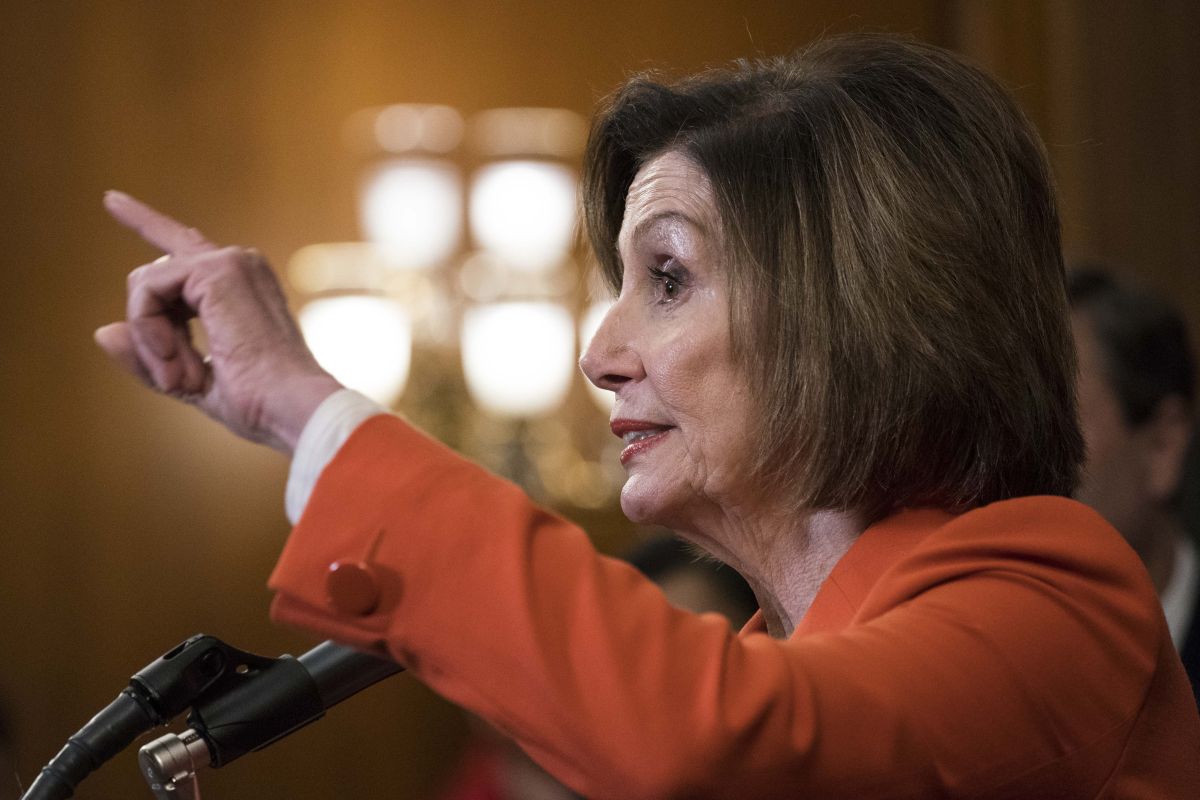PM speaks with Trump, says India, US will work together towards global peace, prosperity, security
This was the first telephonic conversation between both leaders since President Trump took office last week.
According to the Committee for a Responsible Federal Budget, a non-partisan watchdog group, the extension of the individual income tax cuts beyond 2025 expiration would add $1.5 trillion to the national debt.

Nancy Pelosi (Photo: IANS)
US House of Representatives Speaker Nancy Pelosi on Monday harshly criticized the White House’s budget proposal for next fiscal year, saying that it’s “a complete reversal” of the promises President Donald Trump made in the campaign.
“Once again, the President is showing just how little he values the good health, financial security and well-being of hard-working American families,” the Democratic leader said in a statement.
Advertisement
Pelosi further said, “The President’s budget is anti-growth, does not create good-paying jobs and increases the national debt”.
Advertisement
The president’s plan slashes half a trillion US dollars from Medicare, takes 900 billion dollars from the lifeline of Medicaid, and cuts social security disability insurance, she added.
According to the Committee for a Responsible Federal Budget, a non-partisan watchdog group, the extension of the individual income tax cuts beyond 2025 expiration would add $1.5 trillion to the national debt.
Earlier on Monday, the White House unveiled a budget proposal for next fiscal year that would cut major domestic programmes, claiming that solid economic growth would support substantial deficit reduction and lead to a balanced budget by 2035.
The budget for the fiscal year 2021, which runs from October this year through September 2021, projects federal deficit will hit $1 trillion for the current fiscal year and hover above $200 billion after a decade, accounting for 4.9 per cent and 0.7 per cent of the GDP respectively.
On Wednesday, the Senate voted to acquit President Donald Trump on two articles of impeachment and marked the inevitable and historic end to a bitterly fought, divisive impeachment trial that will reverberate into the 2020 election and shape Trump’s presidential legacy.
The acquittal verdict was the final act of a four-month impeachment process that inflamed the partisan tensions simmering throughout the course of the Trump administration, the friction that boiled over during the State of the Union even though Trump left impeachment out of his speech.
Earlier on Wednesday, Democratic House Speaker Nancy Pelosi denounced the Senate’s acquittal of President Donald Trump on Wednesday, saying he remains “an ongoing threat to American democracy.”
Earlier on Thursday, Trump attended the National Prayer Breakfast, where he attacked his political rivals and claimed that they had inappropriately invoked “their faith as justification” for their decisions to vote to remove him from office.
It appeared that Trump was referring to Pelosi and Romney, who both have said that their faith guided them to the decision on why Trump needed to be impeached.
The watchdog group said the budget relies on “overly optimistic” economic assumptions and “budget gimmicks that inflate its savings and distract from its actual policy reforms”.
Advertisement